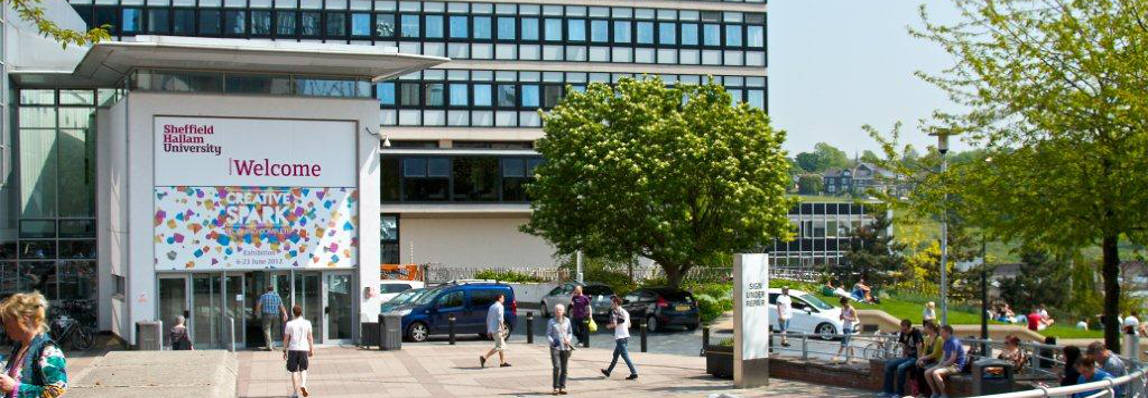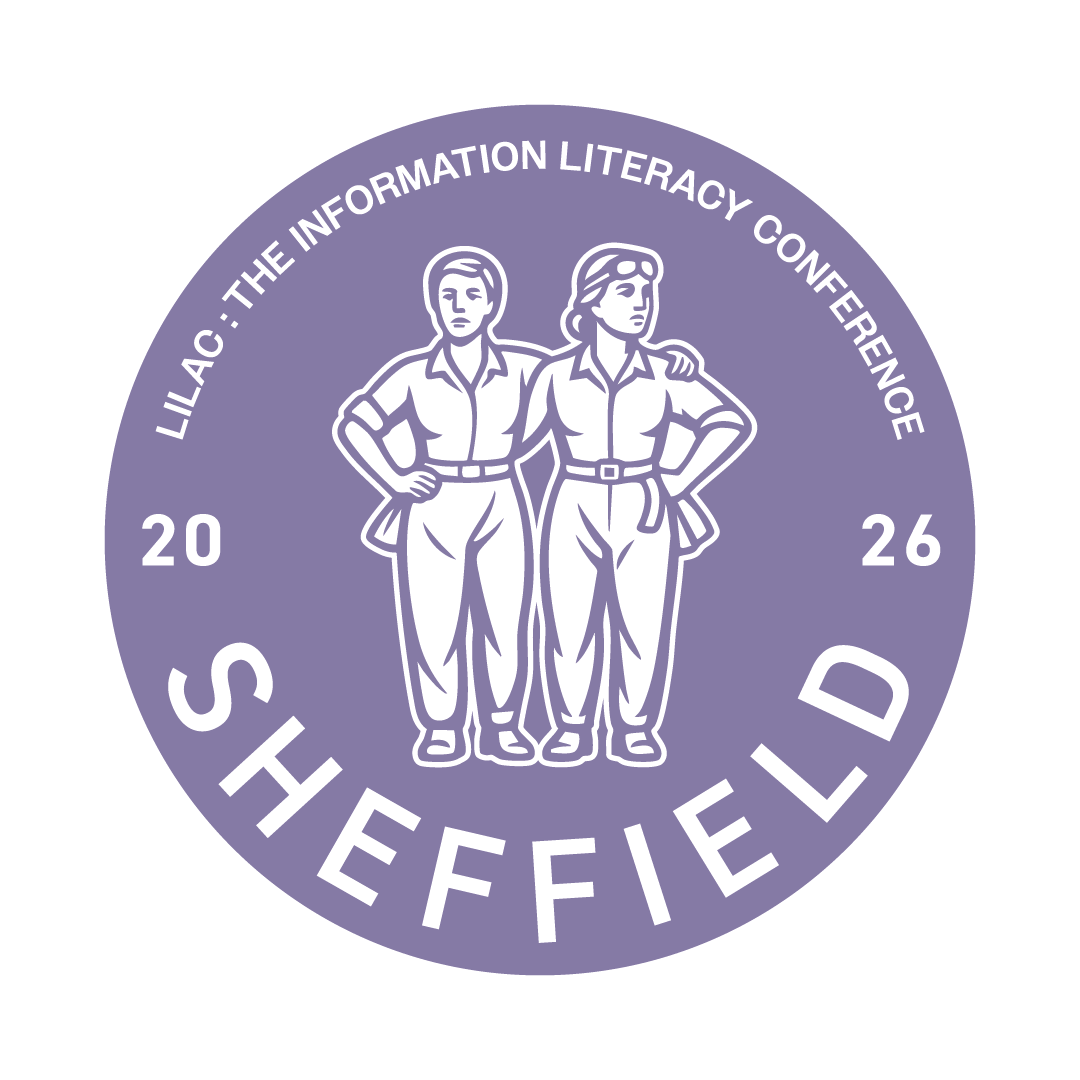
On this page you will find details of:

In 2014 LILAC celebrated its 10th birthday at the networking evening in Sheffield City Hall.
A selection of photos from the conference can be found on our flickr.
Alison Head (Research Scientist, University of Washington’s Information School & Faculty Associate, Berkman Center for Internet and Society at Harvard University) – Truth Be Told: How Today’s Students Conduct Research.
Bill Thompson (Head of Partnership Development, BBC’s Archive Development Group) – Information Science and the 10 Cultures.
Kate Arnold (Information and Support Programme Lead, Macmillan Cancer Support) – What value and benefits do we add? Why information professionals are essential to successful digital, health and information literacy delivery.
LILAC 2014 was also privileged to receive a video address from Paul Zurkowski, the practitioner who penned the term ‘information literacy’ 40 years ago. We also have access to a transcript of this address.
The themes for LILAC 2014 were:
Hare, R. (2014). Report from LILAC 2014. ARLG North East blog [Online]. Available at: http://arlgnortheast.blogspot.co.uk/2014/05/report-from-lilac-2014-by-rosie-hare.html (Accessed:15 May 2014).
Kelly, B. (2014). Capturing the conference buzz: #LILAC14 as an example. UK Web Focus [Online]. Available at: http://ukwebfocus.wordpress.com/2014/04/28/capturing-the-conference-buzz-lilac14-as-an-example/ (Accessed: 1 May 2014).
Kelly, B. (2014). LILAC14: Feedback. What did people think about the #lilac14 conference? This Storify archive provides a summary of the tweets about the conference. Storify [Online]. Available at: https://storify.com/briankelly/lilac14-feedback (Accessed: 1 May 2014).
McCluskey, C. (2014). LILAC 2014, Sheffield Hallam University. Storify [Online]. Available at: https://storify.com/librarygirl79/lilac-2014 (Accessed: 1 May 2014).
Secker, J. (2014). LILAC 2014: reflections and thoughts. Libraries, information literacy and e-learning: reflections from the digital age [Online]. Available at: http://janesecker.wordpress.com/2014/05/20/lilac-2014-reflections-and-thoughts/ (Accessed: 31 May 2014).
Webber, S. (2014). #lilac14 spotted via twitter. Information Literacy Weblog [Online]. Available at: http://information-literacy.blogspot.co.uk/2014/04/lilac14-spotted-via-twitter.html (Accessed: 1 May 2014).
White, J. (2014). #LILAC14 – behind the #hashtag. Teach Digital Literacy [Online]. Available at: http://teachdigitalliteracy.com/2014/04/29/lilac14-behind-the-hashtag/ (Accessed: 1 May 2014).
Wolfenden, S. (2014). #LILAC14: You don’t have to be an old woman to wear purple. The Wolfenden Report [Online]. Available at: http://thewolfendenreport.blogspot.co.uk/2014/05/lilac14-you-dont-have-to-be-old-woman.html?spref=tw (Accessed: 31 May 2014).
Andreassen, H.N., Figenschou, L., Flytkjær, V., Løkse, M., Låg, T. & Stenersen, M. From how to why: critical thinking and academic integrity as key ingredients in information literacy teaching (poster).
Andrews, P. Embedding multiple literacies in a MOOC for professionals (poster).
Angell, K., Boss, K. & Tewell, E. The amazing library race: using problem-based learning and assessment in library orientations.
Aston, S. & McIndoe, S. Sympathy for the academic: librarians as lecturers.
Barden, M., Grundy, D. & Prescott, G. A recession-proof information literacy strategy (teachmeet).
Bazela, C., Grant, V. & Tucker, A. History of Medicine 2.0: using creative media to enhance information literacy teaching for 1st year medical students (poster).
Bhimani, N. & Sakarya, B. Digital literacies in higher education (poster).
Blake, J. & Butterworth, K. Clarity in collaboration: making partnerships work in across campus student skills support.
Blunk, R. Using digital technology to optimise your information literacy offering without breaking the bank (poster).
Boyle, S. & Molloy, J. Opportunity out of change: designing a new approach to student and teaching learning support at UCD Library (poster).
Carbery, A. Online inquiry-based information literacy instruction: designing and delivering a blended IL programme.
Carbery, A. & Leahy, S. Evidence-based instruction: assessing student work using rubrics and citation analysis to inform instructional design.
Carnegie, M., White, J. & Vivian-Shaw, V. Canoodling with careers: cross-team working in information literacy (including LibGuide).
Carritt, A. & Bridle, O. Library induction on the go – delivering library induction via mobile devices (teachmeet).
Carroll, L. & McEntee, A. A collaborative approach to embedding information and academic literacies in the curriculum.
Clarke, Z. Steps to employability: the collaborative development and design of an information literacy programme.
Cook, A., Johnston, G. & Bent, M. Herbal magic: from tiny acorn to mighty oak – a case study in collaboration, outreach and information literacy development.
Coombs, J. & Hollier, C. A quadruple collaboration: students, librarians, academics and industry developing a peer to peer support initiative.
Costigan, A. & Introwicz, M. Team based learning in information literacy instruction.
Courtney, M. ACE in the hole: linking information literacy and practice in a service learning-based context.
Courtney, M., Donovan, C. & Minter, C. Watch, listen & learn: ethnographic methods for information literacy assessment (including worksheet).
Dare, J. & Laing, C. Designing a library e-induction for nursing & midwifery students (poster).
Dimmock, G. & Siddall, G. Survival: how to do your existing job and more…with fewer people.
Earp, V. Plagiarism school 101.
Emary, L., McCluskey, C. & Watt, V. Little and often: exploring the potential of information literacy mini-lessons.
Fidgeon, A. Research court in session: actively learning information evaluation skills (teachmeet).
Fisher, K. & Joyce, L. Drilling down to the core: collaborative core content creation (poster).
Fisher, K. & Joyce, L. Drilling down to the core: collaborative core content creation (teachmeet).
Flynn, D. Embedded information literacy in the 21st century curriculum.
Franke, F. Networking for information literacy – collaborations of German university libraries.
Goldstein, S. & Walton, G. Transferability of information and data literacy beyond academia (poster).
Graham, N., Kelly, B., Packham, C., Walsh, A. & Gray, A. Improving the Information Literacy entry on Wikipedia: LILAC’s first edit-a-thon!
Graham, N., Secker, J., Flynn, D. & Burke, S. From local to global: sharing good practice in information literacy.
Grant, V., Sen, B. & Harrison, D. Innovation, creativity and change: utilising appreciative inquiry and reflective practice to achieve asset based information literacy.
Gray, A. & Graham, N. Wikipedia: it’s not the evil elephant in the library reading room.
Green, B. A tool to help researchers migrate from Google searches to evidence based reviews.
Groves, A. Understanding ebook usage: using citation analysis to inform information literacy teaching (poster).
Gullbekk, E. The networks of library support: teaching PhD-candidates who publish (poster).
Hadfield, E. E-safety advocates – working with young people to raise awareness.
Haigh, J. IL on a shoestring – using a ‘whole team’ approach to developing in-house resources.
Halfpenny, S. Contextualising your literature search using the Contextagon.
Hames, I. & Ardner, B. Information literacy course module from Credo.
Hohmann, T. & Leiss, C. Sixth formers at university – easing transition and promoting student recruitment.
Howard, H. Off to a flying start.
Hunter, I. IL and the Google generation: teaching research skills to sixth formers.
Inskip, C. Mapping resources to competences.
Irving, C. Developing and running a National Information Literacy Community of Practice on a shoestring.
Järveläinen, L. & Karjalainen, R. A joint IL-recommendation for Finnish universities.
Kavli, S. & Heldaas Seland, E. Empowering students to critical thinking.
Keleher, J. An investigation into student use of LibGuides: do they want fries with that?
Kelly, B. & Evans, J. Preparing our users for digital life beyond the institution (poster).
Kelly, B. & Graham, N. Getting to grips with Wikipedia.
Kelsall, J. Great expectations: a team approach to creating interactive online skills resources (including storyboards).
Kevill, S. Referencing: finding the missing piece (teachmeet).
Latham, M. & Ewen, M. DIY: in-house evaluation to inform and improve IL delivery (teachmeet).
Lawrence, D. The Perch – making words take flight! (poster).
Lindstein, L. Specialising in information literacy or field knowledge?
Lönn-Stensrud, J. & Gullbekk, E. PhD on track – working with generic skills in context.
Lundmark, A.M. & Lönn-Stensrud, J. Launching high school teaching support at the University of Oslo Science Library.
McCluskey, C. Improving information literacy through annotated bibliography assignments: a collaboration between library and faculty (teachmeet).
McGowan, K. & Holgate, E. Crossing the line with students: is that you or the other lady?
McKinney, P. & Sen, B. Supporting information literacy educators: reflective pedagogic planning improving information literacy practice.
McManamon, C., Finnegan, A., Monagle, H. & Cottam, S. What do you know? Or who do you know? Developing information literate information professionals through networking and free training (teachmeet).
McNicol, S. Information flow: an integrated model of applied information literacy.
Man, M. Designing one information literacy website for many types of information seeking behavior.
Martin-Bowtell, A. Bio bibliography building (teachmeet).
May, J. CILIP and the policy work of the Information Literacy Steering Group.
Moody, J. Is library induction “Pointless”? A quiz based approach to motivate students and make induction memorable (including demo).
Nikoi, S. Information literacy and learning transition: what can we learn from first year undergraduates?
Osborne, A. & Ramsden, B. Practice & pedagogy: joining the dots (poster).
Owen, M. Improving ‘creative’ bibliographies (teachmeet).
Palmqvist Wojda, E. & Stigell, A. Dare! One way of leaving your comfort zone and becoming better teachers (poster).
Parkes, D. & Pope, A. An ID&AL Loop.
Pek, S. Partnerships with education sector to uplift information literacy in Singapore schools.
Pettersson, K. & Landgren, L. Methods and tools for information literacy assessment – a collaborative project between university and upper secondary school libraries inSweden.
Pullinger, D. Rationalising referencing: changing policy and practice to smooth transition and improve the student experience.
Purcell, S. & Barrell, R. The power of collaboration: promoting information literacy skills in a Primary Initial Teacher Education course.
Raynor, M. & Craven, J. Evaluating the impact of information skills training on health professionals: looking beyond satisfaction.
Schneider, M. Digital Dates.
Schneider, M. The Student Guide to Social Media: a case study in collaboration.
Schroeder, M. Finding the student voice in subject blogging (teachmeet).
Scott, C. & Collins, A. Strategic proposal for an embedded information literacy curriculum.
Secker, J. & Jackson, C. Publication without tears: tips for aspiring authors.
Sen, B. & Spring, H. Supporting young people’s heath information needs.
Shreeve, S. & Delaney, E. Value and impact of librarians’ embedded IL teaching on student skills development.
Smith, J. Digital literacy in practice: bringing the library to the classroom (poster).
Spring, H. Information literacy when there is no information: the case of rare and orphan diseases.
Stanton, W., Fodor, P. & Curtis, R. Gaining the advantage: advocates for literacy: a peer learning approach.
Trtíková, I., Belohoubková, L., Landová, H. & Tichá, L. IVIG: let’s talk information literacy in the Czech Republic (poster).
Walsh, A. Playing with information literacy.
Walton, G. & Johnston, E. Does information literacy increase a person’s self-efficacy (poster).
Ware, F. The rise of the researcher: meeting a shift in IL demand.
Webb, A. & Tams, M. SMILE – are you ready for your close up? (poster).
Wella, K. Myths or facts: what do serodiscordant couples in Malawi know about HIV and AIDS?
Whitworth, A. Dialogism, Mikhail Bakhtin and information literacy.
Wilkinson, E. & Bell, M. SADL up: putting students in the driving seat for digital literacy.
Young, Z. Can peers be more influential than you? A ‘flipping great approach to teaching web evaluation (teachmeet).
LILAC is great opportunity for our fellow professionals to present their ideas, share best practice and show case new thinking in our sector. If you have an idea then we'd love to hear about it. We have many options for the types of sessions you might run from a symposium to a workshop. Visit our Call for Presentations page to find out how to apply.
Places at this year's conference are likely to be in demand more than ever before. Each year our conference grows increasingly popular and this year promises to be no different. Don't miss out and book your place now for this year's conference.
We look forward to seeing you there!
